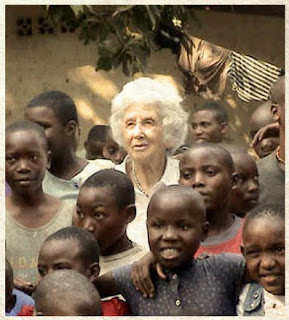
If not by first-hand experience, we all have some knowledge about what goes on during police interrogations – be it from television, the theaters, or from other sources. The purpose of these interviews is to gather information on the case at hand directly from the mouth of a witness or suspect. It is obvious that these police interrogations would evoke some level of anxiety in the witness or suspect, so it is more likely that certain events and personal accounts would be jumbled up or ambiguous to a certain extent. Because of this, interrogators are encouraged not to ask “yes or no” questions, as these questions may distort the perceptions of the subject on past events. For example, question: “You saw John at the gas station last night, didn’t you?” Response: Hmm, now that he mentions it, maybe I did… As the introduction of new information in this case brings about different reactions in the witnesses, my acquisition of historical and cultural context behind the photograph I selected, taken by Twagira and entitled Fishing, slightly altered my perception of the Rwandan text as a whole.
My initial reaction to this photograph taken by Twagira was a feeling of peace and solidarity; much like the way one feels when out fishing for recreation, minus the high spirits and fun atmosphere. I perceived low signs of stress and small levels of personal burden and reasoning behind sadness. I interpreted a strong sense of companionship between the two males which warmed up the picture even more. This is due to the fact that they are the only people in the photo and they are positioned right next to each other in relation to the seemingly endless landscape. I initially found the text to be the simple photographic capture of a daily routine in the lives of two Rwandan men, but after conducting my own research on the modern history of this small country and gathering information on the orphanage where Twagira stayed, my reactions toward and overall perceptions of the photograph changed slightly.
Beginning in April of the year 1994, genocide erupted across Rwanda. The two ethnic groups, the Hutu and the Tutsi went up against each other and as a result, a number of Hutu extremists murdered and wiped out approximately 800, 000 Tutsi people and moderate Hutus over the course of only about 100 days. To express the magnitude of this genocide, the Imbabazi orphanage website states, “Never before in history has there been an extermination of human life on such a scale in such a short period of time.” As a result of this mass “extermination,” more than 95, 000 children were left without parents. A woman named Roz Carr discovered this disheartening fact and started up the Imbabazi Orphanage; Imbabazi meaning “a place where you will receive all the love and care a mother would give.”
After having this information brought to my attention, I began to view the picture a bit differently. No longer did I feel peace, but safe and controlled anxiety coming from the two men. Stress levels seemed higher and the task at hand began to look a lot more difficult and strenuous. Rather than detecting companionship between the two men, I now perceived brotherhood as a direct result from reading about the horrible things they might have experienced together, but persevered through. The hues in the picture became a lot darker and more melancholy, and I noticed that the dark shadows of the water began to pop out at me as the viewer more clearly. All of these differences in my perception of the photograph resulted from the simple acquisition of background history and information of the Rwandan orphanage. It is interesting how much the context can distort such a static image.
Works Cited
Jendry, Bob. "Imbabazi Orphanage - Rwanda". The Imbabazi Orphanage. 16 Feb 2010
No comments:
Post a Comment